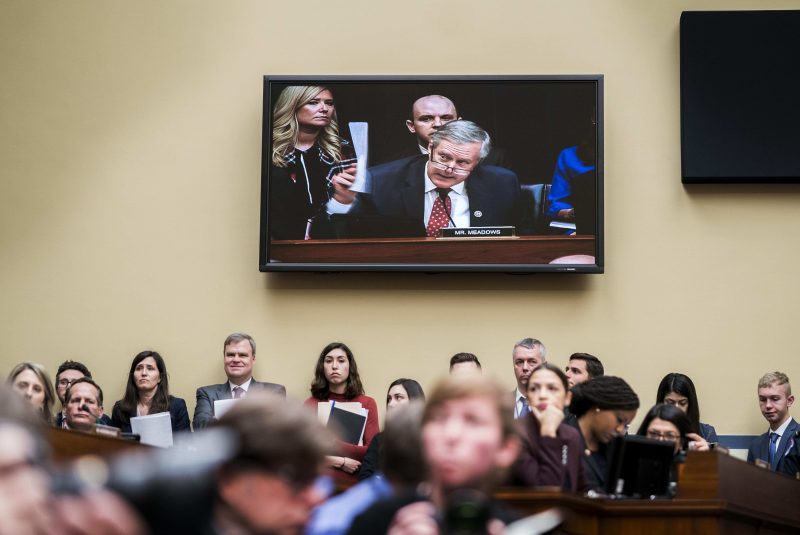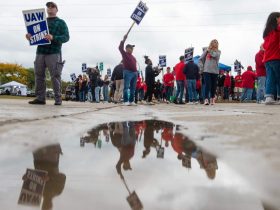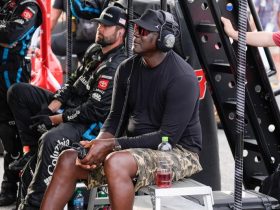With the 118th Congress (finally) sworn in, the new House Republican majority set about announcing a spate of legislation and investigations focused heavily on the political opposition. Now in charge of various committees and the subpoena power they wield, Republicans have pledged to dig into issues that have meandered around conservative media for months, things like President Biden’s son Hunter, the putative politicization of federal law enforcement and various complaints about social media.
In some ways, it’s a mirror image of what happened when Democrats regained control of the House in early 2019. Then, committees controlled by Democrats announced scores of investigations into President Donald Trump and his administration.
But that period offers a useful point of comparison for another reason: A lot of those investigations were announced, generated headlines — and then didn’t do much. Announcing a congressional investigation is a bit like announcing that you plan to sue someone. Until subpoenas start showing up, it may be a largely empty threat.
I was curious how many of the investigations announced at the beginning of 2019 actually gained much traction. This is a trickier proposition to assess than it may seem, given that it involves myriad press releases from numerous committees — and then, on the tail end, evaluating what was actually done. Luckily, I came across two useful resources that simplified the process. The first was a comprehensive list of probes announced by House Democrats a few months into 2019 compiled by NBC News. The second was the discovery that GovInfo allows users to search for congressional reports, including the reports compiled by committees at the end of a documenting their work over the preceding two years.
In total, the NBC compilation included nearly 80 investigations. Many, though, were generic governmental oversight, focused on decisions made by the Trump administration or its officials, the sorts of things that House committees should be undertaking regardless of politics. A subset, about 20, focused specifically on things that Trump himself had done or information the committees sought from the then-president: probes of his tax returns, of his interactions with Russia in the 2016 campaign, of his efforts to leverage his office for his personal gain.
I looked at the committees’ reported work output on 13 of those investigations, the ones involving the House Financial Services, Judiciary, Oversight, Transportation and Ways and Means committees. What became apparent is that — with some major exceptions — the probes either didn’t warrant a mention in the end-of-year summaries or they faltered after issuing requests for information.
One major exception, by the way, was the first impeachment of Donald Trump. The House Judiciary Committee’s broad probe of Trump, announced in March 2019, was eventually largely subsumed into the impeachment inquiry that began that fall. But the impeachment didn’t stem from one of the probes announced when Democrats took the House. Instead, it followed from a whistleblower report describing Trump’s efforts to pressure Ukraine in service of his 2020 reelection bid.
Here are the 13 investigations I reviewed and the outcomes as described by the committees themselves. The descriptions of the investigations come from NBC’s original report. It is certainly the case that investigations may have involved activity not included in the committees’ final reports, but this analysis operates under the assumption that anything excluded from the reports didn’t yield much of interest.
“Easing of sanctions on companies linked to Russian oligarch Oleg Deripaska.” Not mentioned in the committee’s summary of its activity.
“Trump’s personal finances, including loans from Deutsche Bank.” Not mentioned.
“Trump administration’s failure to produce Russian sanctions report.” Not mentioned.
“Easing of sanctions on companies linked to Russian oligarch Oleg Deripaska.” Not mentioned in the committee’s summary.
“The president’s threats to the rule of law,” which included examinations of possible corruption, abuse of power and obstruction. This wide-ranging investigation was boosted by the release of special counsel Robert S. Mueller III’s report on Russian interference efforts in the 2016 campaign. The committee’s summary of its work describes a series of hearings centered on Trump’s activities that were eventually folded into the impeachment inquiry. Even with that, there were continued separate probes of influence and other questions.
“Trump’s interference in Time Warner merger.” Not mentioned.
“Reports that the president said he would pardon acting Department of Homeland Security Secretary Kevin McAleenan if he illegally closed the southern border to migrants.” The committee reports that it requested documents and subpoenaed McAleenan, but the subpoena was issued only a few months before the end of Congress’s term, at which point such subpoenas expire.
“White House security clearances.” The Oversight summary of its work documents that the committee interviewed a whistleblower and received briefings from government departments. Ultimately, it determined that White House was not following its stated policies on clearances.
“Michael Cohen hush-money payments.” Cohen, a former attorney for Trump, admitted that he’d helped facilitate payments to women who alleged sexual relationships with Trump. Oversight’s report notes that it held a hearing with Cohen that attracted a great deal of media attention. It also reportedly sought information from the Trump Justice Department, but was stonewalled.
“Michael Cohen’s claims that Trump was improperly inflating financial statements.” In Cohen’s testimony at that hearing, he alleged that Trump had submitted false financial statements. The Oversight investigation into the issue led it to subpoena a firm that did accounting work for Trump. The fight between Congress and the firm, Mazars, made its way to the Supreme Court, which ruled in favor of Congress.
“Trump Hotel lease of Old Post Office building.” The committee’s summary indicates that it held hearings and issued a subpoena on the issue in the 116th Congress.
“Easing of sanctions on companies linked to Russian oligarch Oleg Deripaska.” The committee’s summary notes that Chairman Richard E. Neal (D-Mass.) sent a letter to the Treasury Department on the subject.
“The president’s personal and business tax returns.” The committee held hearings on presidential returns in years passed and promoted legislation mandating release of returns by presidential candidates.
And that’s the lot. The question that emerges is where and how accountability was levied. In some cases, announced investigations got most of their traction in drawing attention to the target of the investigation, not from the results of the probes themselves. In fact, only occasionally was there an outcome that might be seen as holding Trump or his administration to account on these subjects.
Congress plays a crucial role in checking the power of the executive branch, and committee investigations are an important tool in doing so. But it is also useful to remember that those investigations are often stymied by the House’s limited power to obtain information or by there not being much to dig up.
Many of those serving in the new House majority, though, likely remember one of the biggest investigative successes in recent U.S. history: the accidental discovery during one of myriad probes of the 2012 Benghazi terrorist attacks that Hillary Clinton had used an outside email server as secretary of state.
“Everybody thought Hillary Clinton was unbeatable, right?” Rep. Kevin McCarthy (R-Calif.) told Sean Hannity in 2015. “But we put together a Benghazi Special Committee, a select committee. What are her numbers today? Her numbers are dropping.”
McCarthy, of course, is now House speaker.








